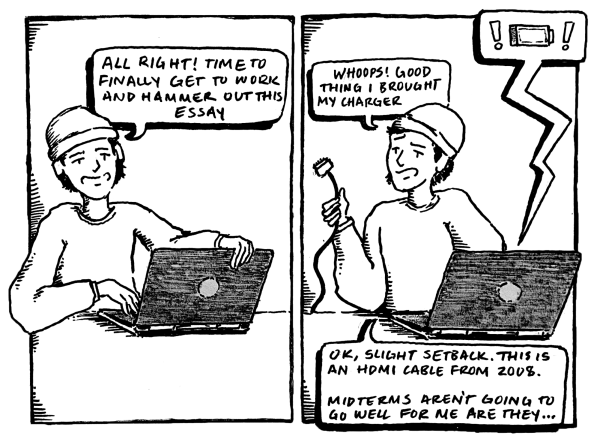Alumni Call for OSCA Survey Dissemination
As alumni working in the sciences, we are concerned over Oberlin College’s recent withdrawal from a collaborative research project designed by College third-year Bhairavi Mehra and Paul Sears Distinguished Professor of Biology and Environmental Studies John Petersen, OC ’88.
This project, a survey, sought to gather information on student housing and dining experiences to facilitate thoughtful, data-driven decision-making in a time of cultural and financial sensitivity. Facing tough choices, the College previously expressed in the One Oberlin report a desire to determine, through self-assessment, what is essential and unique to Oberlin College — its vital nature and experience for students.
As scientists, we have dedicated our lives to collaboration, objectivity in truth-seeking, and transparency. We learned this at Oberlin. We fear the College’s decision not to pursue the assessment undermines the essential Oberlin-ness that it purportedly seeks to preserve and mirrors an alarming disregard for objectivity and suppression of fact in our culture at large.
Mehra and Petersen’s survey was approved by the Institutional Review Board and supported by the Alumni Leadership Council and the Office of Alumni Relations, who agreed to send it to every alumnus in their database. However, as reported in the Review, hours before the survey was to be sent, Oberlin’s administration shut the process down (“Halted Survey Sparks OSCA Concerns,” Feb. 14, 2020).
The survey never went out. No data were collected. We find this outcome unacceptable because our experiences as Oberlin student researchers instilled in us a deep commitment to data-driven, intellectually independent decision-making. The student-faculty research collaborations in which we all partook provided invaluable examples of integrity, rigor, and curiosity set by advising professors, facilitated deep relationships with College faculty and staff, and imbued a sense of belonging within the larger Oberlin community.
These were Oberlin’s gifts to us: the courage and capacity to envision a better world and the skills to create it through rigorous ethical and scientific principles. Since graduating, we have pursued careers in academic science, conservation ecology, recycling innovation, environmental advocacy, affordable housing policy, public service, medicine, and music. These creative and mission-driven career paths align with Oberlin’s historic values and the stated goal of the Academic and Administrative Program Review to create a “more just society in a way that meets the needs of current and future generations of young people who are encountering a world that is changing rapidly.”
Time and time again, we have drawn on our education as we’ve gathered, analyzed, synthesized, and applied data to respond ethically and justly to matters of social and environmental concern. Our Oberlin research experiences taught us to collaborate with others in establishing the truth, even when that truth is inconvenient.
Keeping this in mind, we have carefully reviewed Mehra and Petersen’s survey. The survey is designed to build a novel and useful dataset, a qualitative and quantitative record of alumni reflections on the consequences of all housing and dining options available at Oberlin (i.e., dorms, cafeterias, Program Houses, Village Houses, and the Oberlin Student Cooperative Association, among others) for their intellectual, professional, social, and ethical development. The survey does not manifest bias in favor of OSCA at the expense of the College’s housing and dining options. Rather, it presents an opportunity for alumni to reflect on how all available housing and dining options contributed to their experience at Oberlin.
We affirm, based on our experience as Oberlin alumni and professionals in STEM, that this survey appears to be a systematic, unbiased, and well-designed instrument. Further, we disagree with the College’s apparent contention that receiving and completing this survey would alienate alumni; in contrast, we assert that it presents an opportunity for alumni to celebrate and deepen their connection to Oberlin.
We hope that the decision to not support this survey was made in good faith, but we fear that, in blocking its dissemination, Oberlin’s leaders are contributing to a larger national climate in which decision-making is motivated by optics rather than facts. Oberlin’s present moment is, and will remain, one characterized by tough financial and organizational choices. Some of these choices will be hard. But the difficulty of these looming decisions is all the more reason for decision-makers to first establish a foundation of robust data collection and analysis.
The project undertaken by Mehra and Petersen brings together some of Oberlin’s most valuable assets: exceptional students and faculty willing to apply their intellectual rigor to gathering unbiased data; tireless staff dedicated to collaboration and inclusion; and engaged, truth-seeking alumni eager to support the College in moving toward a secure future. Could the explanations offered for the last-minute suppression of this survey — that survey distribution would interrupt the alumni-engagement strategy, or that decision-makers already have enough information — justify throwing away the unique opportunity this research offers? Do those involved in suppressing the survey believe the risks of cluttering an alumni’s inbox, or perhaps of receiving data that is inconvenient, outweigh the academic, strategic, and ethical benefits that this survey could create?
We call on Oberlin’s decision-makers to allow the survey to be disseminated immediately; receive a formal briefing on the survey’s results; and commit to a cross-disciplinary stakeholder engagement process, with tangible participation from students, faculty, and alumni, in order for any relevant decisions to be adequately informed by data.
Our alma mater’s administrators now find themselves at a crossroads. Oberlin bills itself as one of the leading producers of Ph.D. candidates in the country. Given the precarious status of scientific values in 2020 America, we can think of no more critical a time for Oberlin to realize the principles of collaboration, transparency, and unbiased truth-seeking it so effectively instills in those it educates.


